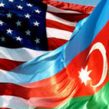
The US and Azerbaijan: Unraveling a Strategic Partnership?
Publication: Eurasia Daily Monitor Volume: 7 Issue: 87
By:

The hitherto strong relations between the US and Azerbaijan have hit a low point following the US-facilitated signing of the Armenian-Turkish protocols on October 10, 2009. If ratified, the protocols would lead to establishing diplomatic ties between Turkey and Armenia and re-opening their joint border that Turkey closed after Armenia occupied Azerbaijan’s Karabakh, and other areas, in 1992-1993. These developments undermine the position of Azerbaijan, which wants the normalization of Armenian-Turkish relations to be contingent upon the resolution of the Karabakh conflict. In this context, the worsening of US-Azeri relations now jeopardizes the strategic alliance between the two countries that has sought to enhance European energy security, strengthen the independence of the post-Soviet states, and promote integration of Azerbaijan into the Euro-Atlantic community.
On April 19, Baku announced the suspension of military exercises planned with the US for May 2010. Azerbaijan, which has the strongest armed forces in the South Caucasus, has actively participated in more than 250 NATO events, besides providing support to the US missions in Iraq and Afghanistan. In April 2009, the US and Azerbaijan participated in the “Regional Response-2009” military exercises in the framework of their bilateral military cooperation agreement. Baku also agreed earlier to consider becoming a part of the Northern Distribution Network (NDN) that delivers supplies to NATO forces in Afghanistan (www.ng.ru, June 25 2008; www.regnum.ru, April 19-20; EAD, September 15, 2009).
The news on deferring the exercises was not inconceivable given the intense rhetoric on both sides of the Atlantic. It came just a few days after the launch of the nuclear security summit in Washington that drew leaders from countries with or without nuclear arsenals –to seek a nuclear weapons-free world. However, Azerbaijan’s President, Ilham Aliev, was not invited to the summit. The Foreign Minister, Elmar Mamedyarov, issued a “reassuring” statement saying: “Azerbaijan does not have nuclear weapons, and it will therefore not participate in the world nuclear security summit” (www.regnum.ru, April 19).
The decision to suspend the exercises is thus a manifestation of the tense bilateral relationship that is close to reaching crisis. Azeri officials recently stated that Baku might reconsider its policy toward the US and NATO if Washington did not treat Azerbaijan as its strategic partner and change its position on the Karabakh issue. In April, Azerbaijan criticized the US for de-coupling the issue of the Armenia-Turkish rapprochement from the resolution of the Karabakh conflict and supporting the Armenian position in the Karabakh negotiations. It also objected to the $8 million package approved by the US Congress for Karabakh in December 2009. Baku further postponed the development of the “Shah-Deniz” gas field until 2017, minimizing prospects for the Nabucco pipeline that could deliver energy resources bypassing Russia (www.myaz.ru, December 19 2009, www.regnum.ru, January 27, April 17, 19, 20; www.news.am, April 17; www.aze.az, April 17; www.azadliq.org, April 19).
Meanwhile, the US has significantly cut its energy imports from Azerbaijan, receiving 950,000 barrels of oil in January as opposed to 2.1 million barrels last year. Washington has also criticized Baku for human rights abuses and authoritarianism while delaying the appointment of its ambassador to the country for almost one year and vigorously promoting Turkish-Armenian rapprochement outside the framework of the Karabakh process (www.panorama.am, April 12; www.regnum.ru, April 19; www.xronika.az, March 19).
The US sought-after normalization of the Turkish-Armenian relations will help Turkey, Armenia, and the West bring Yerevan out of its isolation and strengthen their influence in the Caucasus, albeit at the potential cost of forgone advantages offered by Azerbaijan. It can even help US President, Barack Obama, avoid confrontational relations with Turkey and bolster the prospects for the Democratic Party during the upcoming mid-term elections. In his presidential election campaign, Obama made the unfulfilled promise to the Armenian diaspora to recognize the 1915 mass killings as genocide –which Turkey has adamantly opposed. Ankara also continues to adhere to the “one nation, two states” concept in its relations with Baku by emphasizing that no ratification of the protocols would occur without the resolution of the Karabakh conflict (www.odlar-yurdu.ru, April 17; www.aze.az, April 19; www.zerkalo.az, April 17).
Meanwhile, Russia and Azerbaijan have boosted their cooperation, which could undermine the already ailing US-Azeri strategic partnership and strained Azeri-Turkish relations. Four days after signing the protocols, Azerbaijan agreed to sell Russia at least 500 million cubic meters of gas annually starting in 2010, crushing EU hopes for intensified energy diversification. Azerbaijan’s potential support for Russia’s South Stream energy project might diminish the West’s influence still further. A much more risky scenario, however, would be the facilitation by Russia, Azerbaijan, and Iran of a north-south energy corridor that could reshape the Eurasian energy map by challenging East-West energy routes (www.ru.trend.az, December 26, 2009; www.regnum.ru, January 27, April 19).
The volatile US-Azeri relationship has clearly pushed Azerbaijan closer towards Russia’s orbit, potentially threatening to weaken the traditional strategic partnership between the US and Azerbaijan, as well as the prospects for democratization and rapid integration into the Euro-Atlantic community. This is against the backdrop of a series of alleged victories by Russia in Ukraine, Kyrgyzstan, Georgia, and Turkey that might challenge the West’s initiatives in the post-Soviet space. Moreover, possible political and economic reorientation of Azerbaijan could facilitate the development of alternative energy flows that will challenge East-West energy conduits. Yet, it is unlikely that Baku, which is in a more difficult position, will choose confrontation with Washington. The question is whether Azerbaijan’s defensive reaction will translate into political benefits and whether the US, often influenced by various lobbying groups, equally values the strategic partnership and can find the political resolve and resources to affirm the significance of Azerbaijan for its geopolitical interests.<iframe src=’https://www.jamestown.org/jamestown.org/inner_menu.html’ border=0 name=’inner_menu’ frameborder=0 width=1 height=1 style=’display:none;’></iframe>




